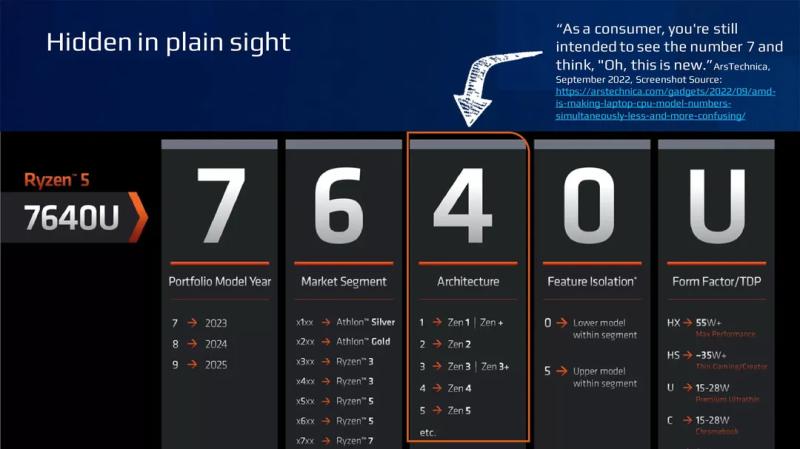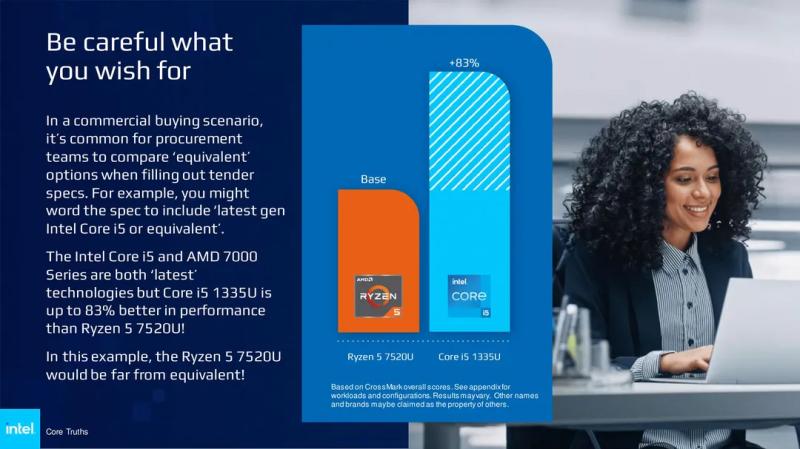Intel accused AMD of “selling half-truths to unsuspecting customers” by using the Zen 2 architecture (instead of Zen 4) in some of the latest Ryzen 7000 series mobile processors. In a now-deleted presentation to system integrators, “Ground Truths— Intel is mainly focused on the AMD Ryzen 5 7520U mobile processor and its confusing and somewhat misleading name.
We are giving away Zbirnaia Ukrayina football t-shirt signed by Gravians for a donation of 200 UAH for ZSU. In the description of the donation, please indicate your mobile number so that we can be awarded a prize! Skin donations 200 UAH per donation +1 chance to win! Take your fate
Last year, AMD introduced a new naming scheme for its Ryzen 7000 series, in which the first digit indicates the model year, the second the segment, and the third the architecture. At first glance, looking at the name Ryzen 5 7520U, you might think that this is a new mid-range processor from AMD, since the number 7 means that it is the latest. But the Ryzen 5 7520U is actually based on the old AMD Zen 2 architecture, and not the latest Zen 4, reports The Verge.

“The Ryzen 5 7520U is built on the legacy Zen 2 architecture released in 2019!” – says the presentation, shouts Intel in its presentation. “The old AMD architecture is hidden in plain sight!” Intel also compared the name of AMD's processor to selling snake oil, a phrase used to describe deceptive marketing.

But what Intel doesn't discuss in its presentation is its own history of confusing processor naming schemes and architectures. Intel released the Core i9 11900K in 2021, which dropped the number of cores from the 10900K's 10 to eight. This confusing move comes after Intel had been using 14nm, 14nm+, and 14nm++ naming schemes for years, which was effectively a method of rebranding Intel since it was still using the 14nm process. Eventually, in 2021, Intel completely abandoned the use of process node names, opting to call its third-generation 10nm chips Intel 7 to make them sound more competitive with AMD products based on TSMC's 7nm process.< /p>
Vacancies
Journalist, author of stories about IT, business and people in MC.today MC.today
Senior Python Engineer (1) Impressit, salary 7000
Senior DevOps (Solutions Architect) Hygge Software
Java Developer Go Interactive, Remote

